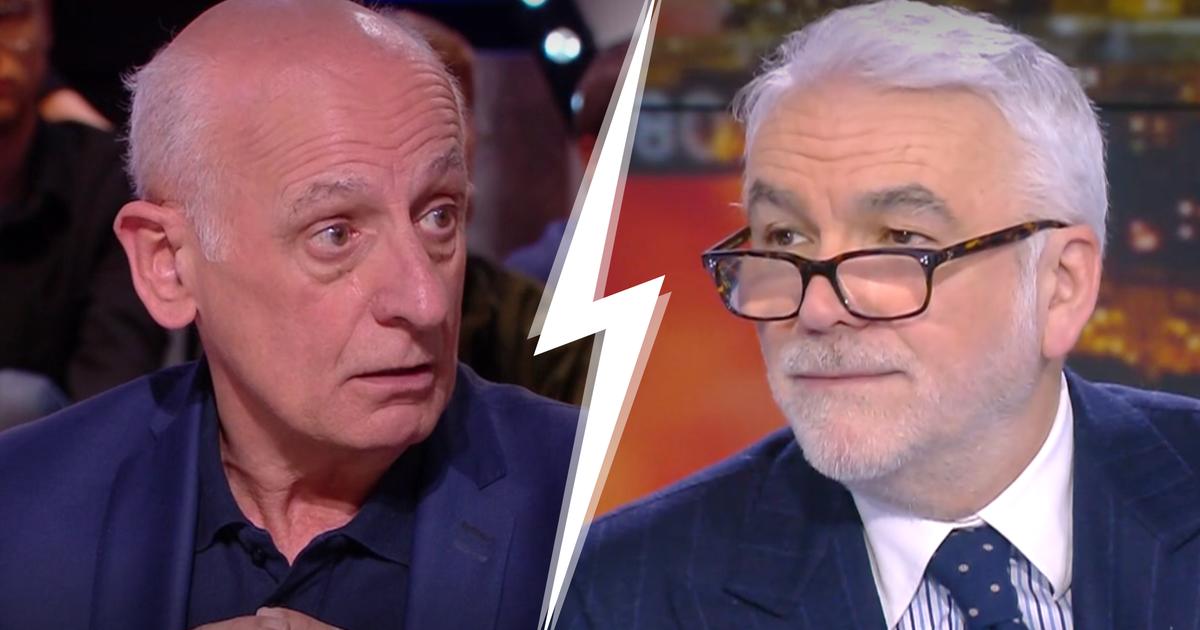It is not usual to hear from the mouths of diplomats of a Western democracy the words that have been heard these days in Paris in the direction of friendly countries.
The French Government has spoken of "treason" and "brutality" in reference to the attitude of the United States and Australia.
President Emmanuel Macron ordered Friday night to call French ambassadors in Washington and in the Australian capital, Canberra, for consultations.
More information
China accuses the United States, the United Kingdom and Australia of fomenting an "arms race" with its defense pact
More ammunition in a rearming Asia
The announcement this week of a military alliance between the United States, Australia and the United Kingdom to stop China in the Indian Ocean and the Pacific is a blow to the core of France's idea of itself and its role in the world. France is, since the United Kingdom left, the only country in the European Union (EU) with the atomic bomb and with a permanent seat on the UN Security Council. And it is the only one with a military deployment capacity that allows it to be equated with the greatest powers: the mission in the Sahel is one example.
One can speak of national pride or the famous
grandeur
: the self-attributed greatness that served General Charles De Gaulle, at the end of World War II, to place his country - humiliated by the German invasion of 1940 and occupied for four years - between the victorious powers and raise it above its actual weight. The
grandeur
has suffered a painful wound with the agreement baptized as Aukus, the acronym in English for the countries that comprise it.
France's discontent is explained by the loss, by the French conglomerate Naval Group, of the contract for tens of billions to manufacture diesel-powered submarines for Australia, a country that has decided to replace them with US nuclear-powered submarines. But there are other reasons. One is the exclusion of an alliance in a region that this country considers to be within its area of influence, with territories such as New Caledonia and French Polynesia and a permanent military presence. Another reason is the surprise factor: Paris maintains that the Aukus agreement was negotiated in secret and that President Macron did not know anything until an hour before it was announced, on September 15.
The French Foreign Minister, Jean-Yves Le Drian, expressed himself on Saturday night on the news of the France 2 chain with extreme harshness, as he had done two days before, after learning of the agreement between the United States, the United Kingdom and Australia. .
“The fact that, for the first time in the history of relations between the United States and France, we called our ambassador for consultations,” he said, “is a forceful political act that signifies the strength of the crisis that exists between our two countries and also with Australia ”.
Le Drian accused the US and Australia of "duplicity, contempt and lies."
Join EL PAÍS now to follow all the news and read without limits
Subscribe here
"We are allies!" Cried the head of French diplomacy.
“An important partner like France is not treated with such brutality or unpredictability.
There really is a crisis ”.
And it went further.
He said that US President Joe Biden behaves like his predecessor, the explosive Donald Trump, "but without the tweets," he clarified in reference to Trump's addiction to messages on the social network Twitter.
François Heisbourg, advisor to the think tank Fondation pour la recherche stratégique, underlines the anomaly of "practicing secret diplomacy as before the 1914 war and to the detriment of an allied state", as the United States and Australia have supposedly done.
"Can you imagine that France, Italy and Germany agreed to a defense alliance of which Spain was not only excluded, but had not been informed?", Says Heisbourg.
And he adds: "What hurts, in this matter, is not simply the loss of tens of thousands of euros, which is certainly unpleasant, but that France is told: 'We are not treating you as allies."
Heisbourg is the author of an essay entitled
Le temps des prédateurs
(The time of predators), in which he addresses the role of a declining Europe vis-à-vis the United States, China and Russia.
The submarine crisis confirms this.
“It is the world of predators.
The United States, from Barack Obama to Donald Trump and now Joe Biden, are in this line, harder and more transactional.
It wasn't just Trump. "
It is as if, in just under a month, France and Europe had suddenly awakened to a reality in which global powers act unceremoniously towards their allies, in which each country must fend for itself and, if one does not devour the rival is devoured. First was the US exit from Afghanistan in August, the fall of the country into the hands of the Taliban and the chaotic evacuation of the airport in the capital, Kabul. Now it is the Aukus, which, for France, confirms the diagnosis of a Europe that can no longer count on the US and the solution: an autonomous defense for Europe.
Not all Europeans share the diagnosis or the solution.
The “stab in the back” that, in the words of Minister Le Drian, France has just received, has so far elicited few expressions of condemnation or solidarity in the rest of the EU.
As if it were just a bilateral issue between Paris and Washington, and between Paris and Canberra.
French diplomacy does not hide its impatience with reluctant European partners.
"Europe is emerging from innocence," Le Drian said.
“After Afghanistan, this.
If Europe, if Europeans do not see that it is necessary to continue within history, and that to continue in history they must unite and defend their interests together, their destiny will be totally different, and we cannot go in this dire direction ”.
The temporary withdrawal of ambassadors is unusual between two countries that, with brief hiatuses during World War II, have maintained a conflictual but crisis- and bomb-proof friendship.
France helped the United States in the War of Independence and both countries have always felt united by more than common interests.
They share a revolutionary origin and a universal vocation: their founding ideals - democracy, human rights,
liberté, égalité, fraternité
- were conceived as ideals for humanity.
The call for consultations of the ambassadors means that they have to travel to Paris for an indeterminate period to report the situation and receive instructions.
"There is a symbolic aspect," Le Drian clarified.
The gesture serves to express discontent without jeopardizing the relationship.
Macron has avoided speaking out in public and, according to the French minister, has not spoken with Biden.
“One of the problems with the calls for consultations from ambassadors is that there will come a time when they will have to be allowed to return to their posts and, if nothing has changed by then, it will not seem that the measure has been very effective,” observes Heisbourg .
"I don't think the matter ends here."
Follow all the international information on
and
, or in
our weekly newsletter
.

/cloudfront-eu-central-1.images.arcpublishing.com/prisa/2UAIHNNTTBAVFIL2X3RT5HMYXI.jpg)




/cloudfront-eu-central-1.images.arcpublishing.com/prisa/XK4A4FN6VVDT552OZPC2OFWQSE.jpg)


